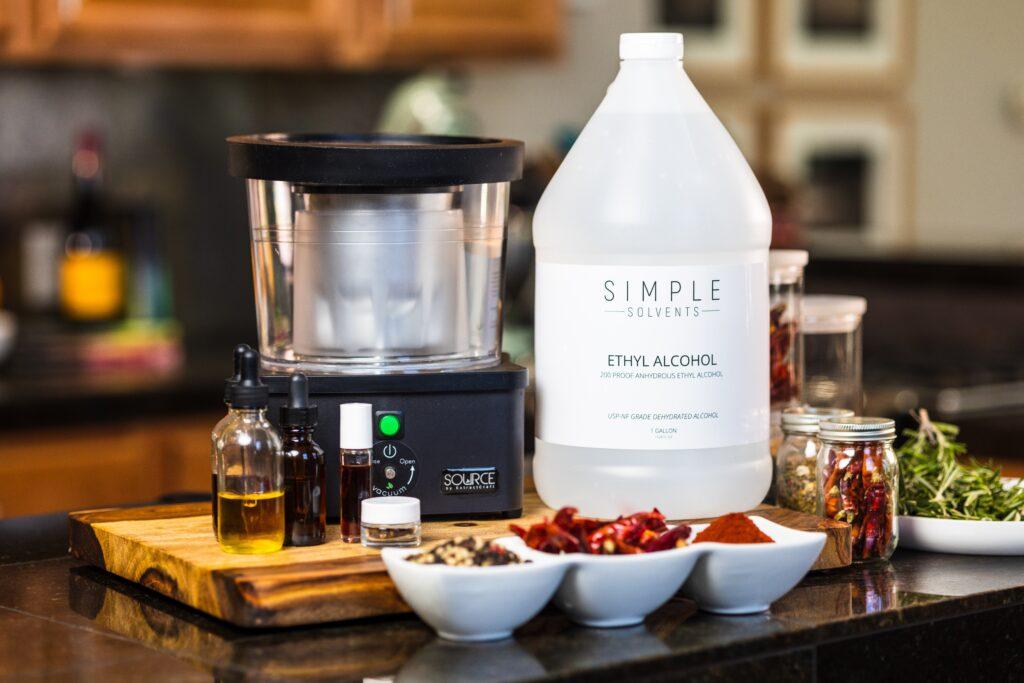Understanding Different Solvents and Their Practical Applications

Understanding Different Solvents and Their Practical Applications
Understanding different Solvents and their purposes is Key! Solvents are an integral component of various industries, with applications ranging from manufacturing and chemical production to pharmaceuticals and personal hobbies. Although solvents are universally useful, not all solvents are created equal, with different types offering diverse properties that make them uniquely suitable for certain applications.
That’s why understanding different solvents, their characteristics, and their specific uses can hugely benefit many industries.

What Will We Review?
In this comprehensive guide, we’ll explore different types of solvents typically used in various sectors, discussing both their strengths and limitations. This includes popular classes like hydrocarbon, oxygenated, and halogenated solvents, among others, each with unique properties that make them ideally suited to certain uses.
We’ll delve into their distinct chemical structures, the reactions they facilitate, and safety considerations to be aware of while handling them.
In addition, we’ll examine real-world applications of these solvents across numerous industries. From the manufacturing sector, where solvents play a crucial part in preparing industrial resins, to the pharmaceutical industry, which uses solvents for a plethora of purposes, like drug formulation and purification.
Similarly, we’ll explore how solvents are instrumental in the world of art, assisting painters in achieving their desired effects, or how they’re used in daily home cleaning materials to combat dirt and grime effectively.
Why Solvents?
It’s crucial to note that while solvents offer an array of benefits, proper handling and knowledge of safety guidelines is a non-negotiable aspect of their use. Therefore, this guide also emphasizes the importance of understanding different solvents for responsible and safe use of solvents, including disposal policies and shipping requirements.
By providing an in-depth analysis of various solvents, this guide serves as a tool for anyone looking to comprehend the fascinating world of solvents and their myriad uses. Whether you’re an industry professional, a hobbyist, or simply a curious reader, understanding different types of solvents can enhance your knowledge and possibly improve your work processes.
Let’s journey together into this intriguing, scientific world of solvents and their vast, practical applications.

Understanding Different Solvents: A Breakdown of Solvents
Armed with understanding different solvents, you can make informed decisions about which type to use for your specific application. In this article, we will delve deeper into various types of solvents, their unique characteristics, and their practical uses across numerous industries.
Hydrocarbon Solvents
Hydrocarbon solvents are derived from petroleum and consist only of hydrogen and carbon atoms. These solvents are further broken down into aromatic and aliphatic hydrocarbons.
- Aromatic Hydrocarbons: These solvents, such as benzene, toluene, and xylene, contain a six-carbon ring structure. They are widely used in the paint, adhesive, and printing industries due to their high solvency and fast-drying properties. However, some aromatic solvents have been linked to health and environmental issues, leading to the development of safer alternatives like low-aromatic and aromatic-free solvents.
- Aliphatic Hydrocarbons: Aliphatic solvents, including hexane, heptane, and mineral spirits, have a straight or branched carbon chain structure. These solvents are commonly used in degreasing agents, cleaning products, and as carriers for insecticides and herbicides.
Oxygenated Solvents
These solvents contain oxygen in their molecular structure and can be further classified into alcohols, ketones, esters, ethers, and glycol ethers.
- Alcohols: Methanol, ethanol, isopropanol, and butanol are examples of alcohol solvents. Alcohols exhibit excellent solvency for various substances, making them versatile solvents for paint thinners, cleaning agents, cosmetics, and printing inks.
- Ketones: Ketones, such as acetone, methyl ethyl ketone (MEK), and methyl isobutyl ketone (MIBK), are commonly used for their strong solvency and quick-drying properties. They are prevalent in the automotive, furniture, and footwear industries, usually used as paint thinners and lacquer solvents.
- Esters: Ethyl acetate, butyl acetate, and isobutyl isobutyrate are examples of ester solvents. They offer a balance between strong solvency and favorable evaporation rates, making them popular in the adhesive, printing, and coating industries.
- Ethers and Glycol Ethers: Ethers, such as diethyl ether and tetrahydrofuran (THF), and glycol ethers, like ethylene and propylene glycol ethers, are used for their strong solvency and high boiling points. These solvents are common in the automotive, electronics, and coatings industries, often employed in brake fluids, printing inks, and cleaning solutions.
Halogenated Solvents
Halogenated solvents have one or more halogen atoms, such as chlorine, bromine, or fluorine, in their molecular structure. The most common halogenated solvents are chlorinated solvents like methylene chloride, perchloroethylene, and trichloroethylene.
These solvents are used for their strong solvency, high stability, and nonflammability. They find applications in metal degreasing, dry cleaning, and the manufacturing of foam and electronic components. However, due to environmental and health concerns, there has been a shift towards finding safer alternatives.
Specialty and Green Solvents
As awareness of the health and environmental issues associated with traditional solvents grows, the demand for safer, eco-friendly solvents has increased.
- Specialty Solvents: These solvents, such as ionic liquids and supercritical fluids, possess unique properties that make them attractive for targeted applications. For instance, ionic liquids have low volatility and high thermal stability, making them ideal for pharmaceutical, catalysis, and energy storage applications. Supercritical fluids, like supercritical CO₂, are employed in the food, pharmaceutical, and cosmetics industries due to their excellent solvency, tunable properties, and low environmental impact.
- Green Solvents: Green solvents are designed to minimize their environmental footprint and reduce hazardous waste. Examples include bio-based solvents, like ethyl lactate and D-limonene, that are derived from renewable resources and exhibit strong solvency and low toxicity. Green solvents find applications in cleaning products, agricultural products, and even pharmaceutical formulations.

Conclusion
Understanding the unique properties and applications of different solvents is crucial for selecting the best one for your specific needs. From hydrocarbon solvents, commonly used in paints and adhesives, to specialized green solvents that prioritize environmental safety, the vast world of solvents offers a myriad of opportunities for various industries.
By considering each solvent’s characteristics, practical uses, and safety limitations, you can make informed decisions to optimize your processes and ensure the best results. Remember, always follow safety guidelines and proper handling procedures when working with solvents to safeguard both yourself and the environment. Implementing this knowledge can ultimately lead to a more efficient, sustainable, and responsible approach to utilizing these essential chemicals in your industry or hobby.
Where to Buy?
Looking for the highest quality solvents for your industrial or home extraction needs? Look no further than our company! Simple Solvents offers the purest pharmaceutical-grade ethanols and solvents on the market, including the popular and effective heptane solvent. Our commitment to quality and purity means that you can trust us to provide you with the best possible product, every time. Plus, with proof of purity provided with every batch, you can have peace of mind knowing that you’re getting the best possible quality. Don’t settle for anything less than the best – contact us today to learn more about our heptane solvent and other high-quality solvents for all your extraction needs!
